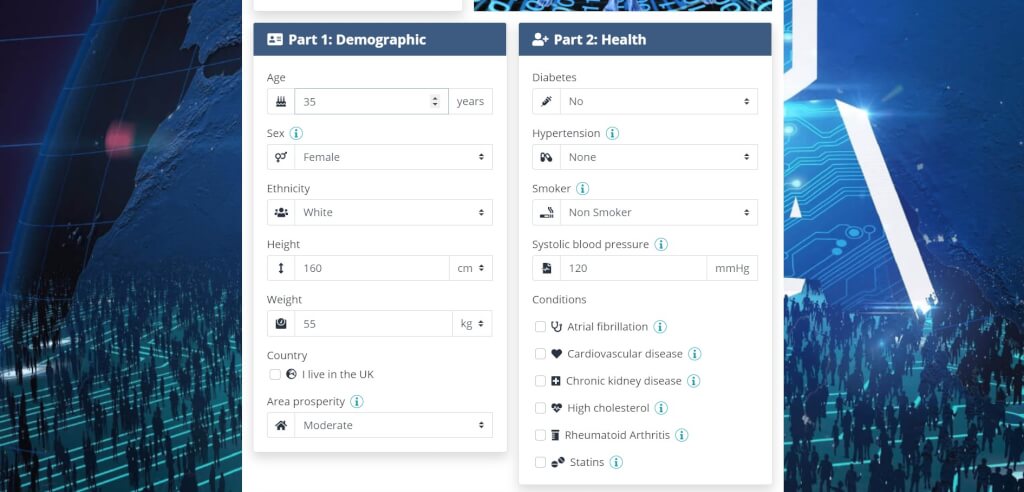Scientists have created a life expectancy calculator: testing
'19.09.2020'
Source: Life hacker
Anyone can use it, writes Lifehacker.

Scientists from the British University of East Anglia have created a life expectancy calculator. It takes into account key demographic and medical parameters and builds on earlier research.
Of course, the authors did not have the opportunity to include all possible parameters and diseases that affect life expectancy, so only the parameters that showed the greatest impact in the course of earlier studies and experiments were used.
You will find a calculator at this link.
Block 1: demographic data
Specify here:
- Age is the number of complete years.
- Sex - gender.
- Ethnicity is a race.
- Height - height in centimeters.
- Weight - weight in kilograms.
- Country - disable this checkbox if you do not live in the UK.
- Area Prosperity - the well-being of the place where you live (from Very Low, "very low" to Very High, "very high").
On the subject: In Israel, brought the seven commandments of longevity: what you need to live to 100 years
Unit 2: health status
- Diabetes - diabetes (absent, type 1 or type 2).
- Hypertension - hypertension (None - no, Treated - controlled, Untreated - not controlled).
- Smoker - do you smoke (Non Smoker - I don't smoke, Light Smoker - I rarely smoke, Moderate Smoker - I smoke moderately, Heavy Smoker - I smoke a lot).
- Systolic blood pressure - systolic ("upper") blood pressure.
- Conditions are special health conditions. Check all that apply.
- Atrial fibrillation - atrial fibrillation (atrial fibrillation).
- Cardiovascular disease - cardiovascular disease.
- Chronic kidney disease - chronic kidney disease.
- High cholesterol - high cholesterol levels.
- Rheumatoid Arthritis - rheumatoid arthritis.
- Statins - you are on statins.
You will receive your data on three indicators:
- Life expectancy - life expectancy.
- BMI - Body Mass Index.
- QRISK2 - the likelihood of a heart attack or stroke in the next 10 years.
As an example, we entered the data of a 35-year-old woman, 160 cm tall and 55 kg in weight, without any diseases and with a moderate level of physical activity and an “upper” pressure of 120 mmHg.

The calculator assumed that our “heroine” will live to be 90 years old, has a healthy body mass index, and the probability of a heart attack or stroke in the next 10 years for her is only 0,4%.








